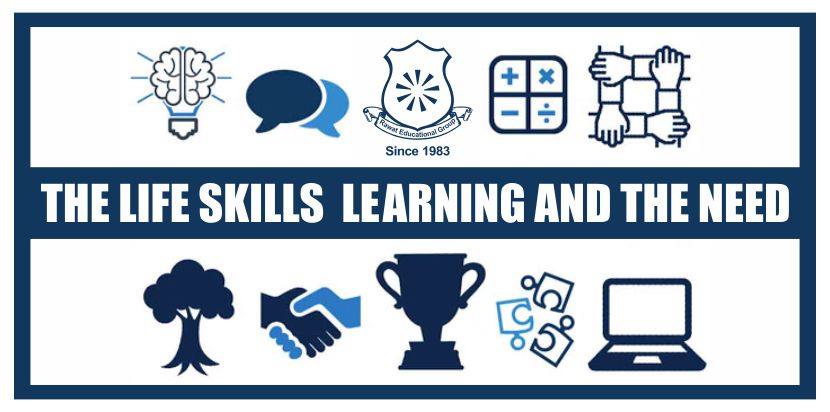
July 22, 2022
Life Skills Learning And The Need
Any skill that is useful in our life can be considered a life skill. Tying our shoe laces, swimming, driving a car and using a computer are, for most people, useful life skills. Broadly speaking, the term ‘life skills’ is usually used for any of the skills needed to deal well and effectively with the challenges of life.
Skills are things that can help you do something. Skills are like tools. People normally think of tools that are used to build something. A hammer is a tool used to build a house, while a pencil is a tool for an artist to draw. In our case, we are talking about “life skill tools” to help you build skills in developing yourself and your eventual personality.
Defining Essential Life Skills:-
There is no definitive list of life skills but we can initiate to with some of the skills.
Certain skills may be more or less relevant to you depending on your life circumstances, your culture, beliefs, age, geographic location, etc. However there can be six the most important life skills identified to groom your personality.
- Excellent Communication Skills: - This broadly describes the skills needed to get on and work with other people, and particularly to transfer and receive messages either in writing or verbally in an effective manner. This skill will remain always as an essential part of our successful journey of life (personal and professional).
- The power of Decision-making and problem-solving: - This describes the skills required to understand problems, find solutions to them, alone or with others, and then take action to address them. This will give you an additional self-generated confidence.
- Thought Process (In Creative thinking and critical thinking):- This describes the ability to think in different and unusual ways about problems, and find new solutions, or generate new ideas, coupled with the ability to assess information carefully and understand its relevance.
- Self-awareness and empathy: - which are two key parts of emotional intelligence. They describe understanding yourself and being able to feel for other people as if their experiences were happening to you.
- Assertiveness and equanimity, or self-control:- These describe the skills needed to stand up for yourself and other people, and remain calm even in the face of considerable provocation.
- Resilience and ability to cope with problems: - which describes the ability to recover from setbacks, and treat them as opportunities to learn, or simply experiences.
It is also true that different life skills will be more or less relevant at different times your life. For example:
When at school or university, you'll need study skills. These may include understanding how to organise yourself for study, do research, and even write up a dissertation or thesis. These are not skills that everyone will need, but writing skills are likely to be useful in a variety of careers and jobs. I hope you must have enjoyed the introduction of The Life Skills and the Need – Part 1. In part two, you will know the process by which you can develop such skills within you.